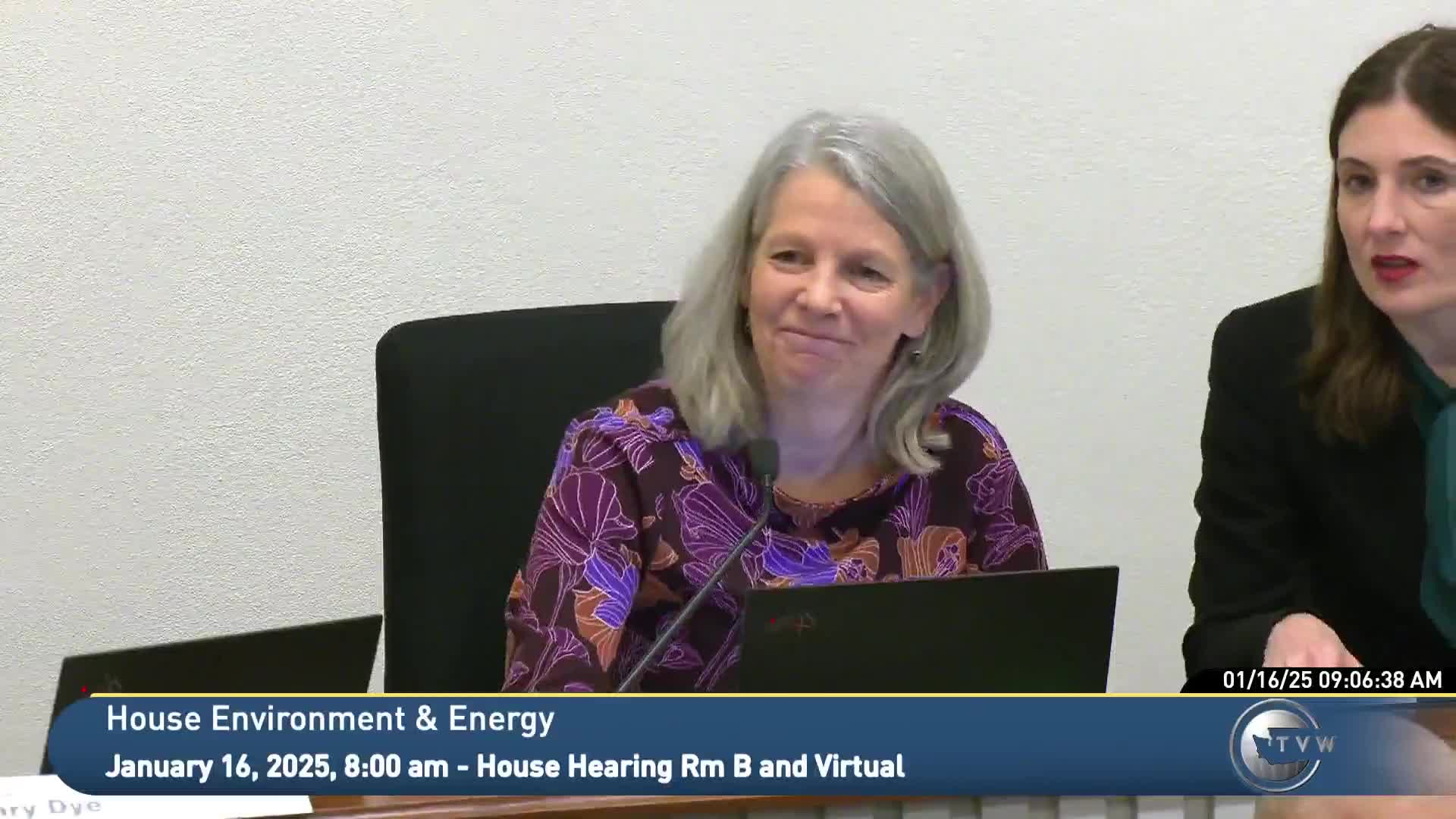House hearing on HB 1071 pits industry and local governments against critics who say the bill lacks producer responsibility
Get AI-powered insights, summaries, and transcripts
Subscribe
Summary
House Bill 1071 drew a packed hearing in the Environment & Energy Committee, with supporters and opponents agreeing on the problem—more and changing packaging in the waste stream—but disagreeing sharply on whether HB 1071’s approach would materially improve recycling or fairly distribute costs.
House Bill 1071 drew a packed hearing in the Environment & Energy Committee, with supporters and opponents agreeing on the problem—more and changing packaging in the waste stream—but disagreeing sharply on whether HB 1071’s approach would materially improve recycling or fairly distribute costs.
Staff previewed the bill’s major elements: producer registration and annual reporting to the Department of Ecology; an Ecology advisory committee and a truth‑in‑labeling task force; two statewide lists (materials suitable for curbside curb collection and a separate drop‑off list) to be developed by October 2026; a county‑by‑county needs assessment to be completed by October 2027; expansion of post‑consumer recycled content (PCR) requirements to additional plastic product categories; and a new structure for low‑income utility and solid‑waste discounts.
Sponsor Representative Feige emphasized planning and tailoring: "Recycling affects everyone in the state of Washington. For that reason, I've included in the legislation a comprehensive plan or needs assessment ... to figure out how we get from our leading the nation recycling rates of 49% for the next 10%, 20%, and beyond." He told the committee the bill is designed to account for the wide differences between urban and rural communities and to hold producers more accountable for packaging.
Supporters in the solid‑waste and recycling industry told the committee the bill's needs assessment and unified lists would improve collection standards and markets. Vicki Kristofferson of the Washington Refuse and Recycling Association said the assessment would help communities answer where to put drop‑off boxes and when curbside glass makes sense, noting that "glass is collected curbside in many communities" but that breakage and contamination sometimes require tailored approaches. Republic Services, Waste Management and regional haulers said the bill provides the kind of planning data they need to invest in equipment, sortation facilities and education campaigns.
Several retail and grocery trade groups said a needs assessment first is preferable to immediately adopting a statewide producer responsibility or deposit system. "Let's see what the other states do," said Mark Johnson of the Washington Retail Association, arguing that multistate retailers face compliance complexity if Washington’s rules diverge from other states.
Critics said the bill leaves major gaps and will not deliver the scale of recycling improvement needed without an extended producer responsibility (EPR) framework that makes producers pay for collection and processing. Ecology staff testified as "other with concerns," citing a 2023 performance study showing the policies in HB 1071 would raise the residential recycling rate only modestly—an estimated increase from about 40% to 41% by 2032—far short of the 65% goal the bill calls for. The Association of Plastic Recyclers and some environmental groups argued the bill lacks funding to upgrade curbside services, inconsistent accountability and that post‑consumer recycled content targets may be set without sufficient processing capacity or material supply.
Glass manufacturers urged the committee not to preclude curbside collection. Scott DeFyfe of the Glass Packaging Institute said that "currently, 60% of Washington residents enjoy curbside glass recycling" and warned the bill’s statutory lists, as drafted, would relegate glass to drop‑off only and could reduce recycling rates unless the committee changes that approach.
Many witnesses urged amendments: tighten the producer definition and nexus between products and fees, ensure the PCR targets are feasible and timed to the supply of sorted, food‑grade bales, provide funding to local governments for collection and education, and preserve local flexibility for curbside service where it is workable. The committee did not take action; the bill received an informational hearing and will be considered further in committee.
No votes or formal orders were taken during the hearing.
